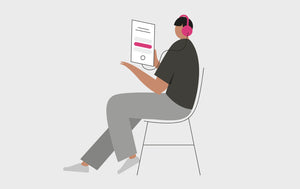Driving With Hearing Loss
Can deaf people drive and does hearing loss make a difference? It is a common misconception that the hearing impaired cannot drive. But, the hard of hearing and deaf can safely and legally drive all over the world.
Hearing Loss & Driving
It is estimated that more than 325 million people across the globe suffer from disabling hearing loss. It is believed over 37 million people in the US have trouble hearing, and in the UK, hearing loss affects roughly 9 million.
Hearing loss has a significant impact on a variety of daily activities such as talking on the phone, hearing the doorbell or simply watching TV. While these mainly affect the individual, other actions, such as driving a car may concern additional people such as fellow drivers and pedestrians. That is why there is an ongoing debate as to whether deaf or hard of hearing people can drive and whether it should be an issue regulated by law.
Can Deaf People Drive and does Hearing Loss make a difference?
Contrary to belief, research has shown that the deaf and hard of hearing do not cause more traffic accidents than drivers with regular hearing. There are multiple reasons behind this fact. First, people with hearing impairments are much more vigilant and rely more on their visual observations - they stay alert for all kinds flashing and emergency signals or vibrations much more than the regular driver. Moreover, it is common that such drivers are more cautious and find ways to observe the road and traffic in a more concentrated manner.
There is also the argument that many drivers who have normal hearing compromise their attentiveness with loud music or talking on the phone while driving, thus posing the same or even greater hazard on the road as not only will they not hear what is happening but also are occupied with something else.
Concerns about deaf & hard of hearing drivers
Although driving with a hearing loss is not obstructed or regulated by law, anyone with hearing loss (just like any other driver) has an obligation to protect the other people in the vehicle and those on the road. Some hard of hearing prefer not to use hearing aids while driving. It is a matter of personal choice. Some hearing aid wearers state that hearing aids pick up background noise that hinders their concentration and they feel more focused when they avoid any such noise.
Not using a hearing aid, though, poses some challenges on the road such as hearing emergency vehicle sirens. Failure to stop or recognise them may be dangerous for all the participants in the surrounding traffic. Many car manufacturers are looking for ways to designate visually any car problems along with an audible indication.
UK driving with hearing loss regulations
Currently, there is not a specific law for driving with hearing loss in the UK. To obtain a car or motorcycle license, you do not have to inform the DVLA you are deaf. However, to drive a bus, coach, or lorry, you must state and declare you are deaf.
US driving with hearing loss regulations
In the United States, you can acquire a driving license if you are deaf or suffer from hearing loss. It is always best to double-check deaf and driving laws in case you are unsure.
Rest of the world driving with hearing loss regulations
Countries such as Australia are starting to implement laws regarding the driving ability of those with hearing impairments. For example, Commercial drivers with a hearing loss greater than 40dB are subject only to conditional license and need to undergo regular checks. It is best to check with the governing body of your country's driving licenses or vehicle laws to see if deaf people can drive or if you need to supply extra information outlining your hearing loss.
Check your hearing
Take our online hearing test to check for hearing loss. Our free hearing test is simple, takes 3-minutes, and you will receive your results instantly.
About Hearing Direct
We are one of the world's leading hearing aid specialists. HearingDirect offers a wide range of affordable products, and information resources to help improve the quality of life for the hard of hearing. We sell:
- Hearing aids,
- Batteries,
- Accessories such as earplugs,
- and amplified devices such as super loud alarm clocks and amplified phones.


